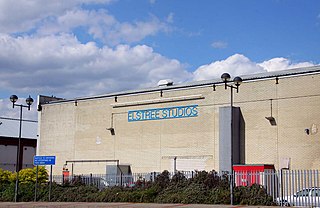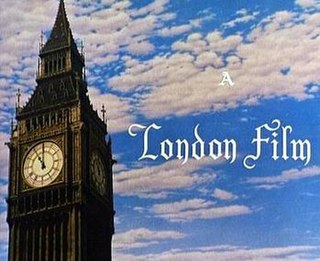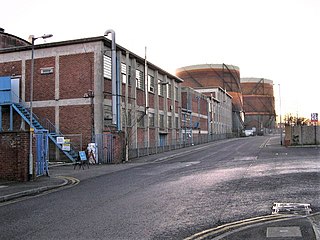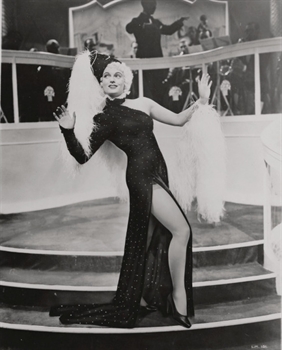
Sir Alexander Korda was a Hungarian–born British film director, producer and screenwriter, who founded his own film production studios and film distribution company.

Elstree Studios is a generic term which can refer to several current and demolished British film studios and television studios based in or around the town of Borehamwood and village of Elstree in Hertfordshire, England. Production studios have been located in the area since 1914 when film production began there.
The British National Films Company was formed in England in 1934 by J. Arthur Rank, Lady Annie Henrietta Yule of Bricket Wood, and producer John Corfield.

London Films Productions is a British film and television production company founded in 1932 by Alexander Korda and from 1936 based at Denham Film Studios in Buckinghamshire, near London. The company's productions included The Private Life of Henry VIII (1933), Things to Come (1936), Rembrandt (1936), and The Four Feathers (1939). The facility at Denham was taken over in 1939 by Rank and merged with Pinewood to form D & P Studios. The outbreak of war necessitated that The Thief of Bagdad (1940) be completed in California, although Korda's handful of American-made films still displayed Big Ben as their opening corporate logo.
MGM-British was a subsidiary of Metro-Goldwyn-Mayer initially established at Denham Film Studios in 1936. It was in limbo during the Second World War; however, following the end of hostilities, a facility was acquired in Borehamwood, which remained in use until it was closed in 1970.
Alfred Junge was a German-born production designer who spent a large part of his career working in the British film industry.

Gate Studios was one of the many studios known collectively as Elstree Studios in the town of Borehamwood, England. Opened in 1928, the studios were in use until the early 1950s. The studios had previously been known as Whitehall Studios, Consolidated Studios, J.H. Studios and M.P. Studios.
Ian Dalrymple was a British screenwriter, film director, film editor and film producer.

Herbert Sydney Wilcox CBE was a British film producer and director.
Herbert Smith was a British film producer and director. He produced 69 films, for Denham Film Studios and British Lion Films from 1933 to 1963, including the war film They Were Not Divided in 1950.
Julius Hagen (1884–1940) was a German-born British film producer who produced more than a hundred films in Britain.

London Melody is a 1937 British musical film directed by Herbert Wilcox and starring Anna Neagle, Tullio Carminati and Robert Douglas. It was made at British and Dominions Imperial Studios, Elstree and Pinewood Studios by Wilcox's independent production company and distributed by J. Arthur Rank's General Film Distributors. It was also released with the alternative title Look Out for Love.
Walter Charles Mycroft was a British journalist, screenwriter, film producer and director. In the 1920s he was film critic of the London Evening Standard, and a founder of the London Film Society, before joining the film industry.
Walter Percy Day O.B.E. (1878–1965) was a British painter best remembered for his work as a matte artist and special effects technician in the film industry. Professional names include W. Percy Day; Percy Day; "Pop" or "Poppa" Day, owing to his collaboration with sons Arthur George Day (1909–1952) draughtsman, Thomas Sydney Day (1912–1985), stills photographer and cameraman, and stepson, Peter Ellenshaw, who also worked in this field.
Hollywood and the United Kingdom are connected via the American industry's use of British source material, an exchange of talent, and Hollywood's financial investment in British facilities and productions. The American studios have had their own bases in the UK in the past, such as MGM-British, and Warner Bros. owned shares in the now long disestablished British distributor Warner-Pathé, once part of the Associated British Pictures Corporation. The U.K. has had major production studios in the United States such as Trilith Studios.

Elstree Studios on Shenley Road, Borehamwood, Hertfordshire is a British film and television production centre operated by Elstree Film Studios Limited. One of several facilities historically referred to as Elstree Studios, the Shenley Road studios originally opened in 1925.







